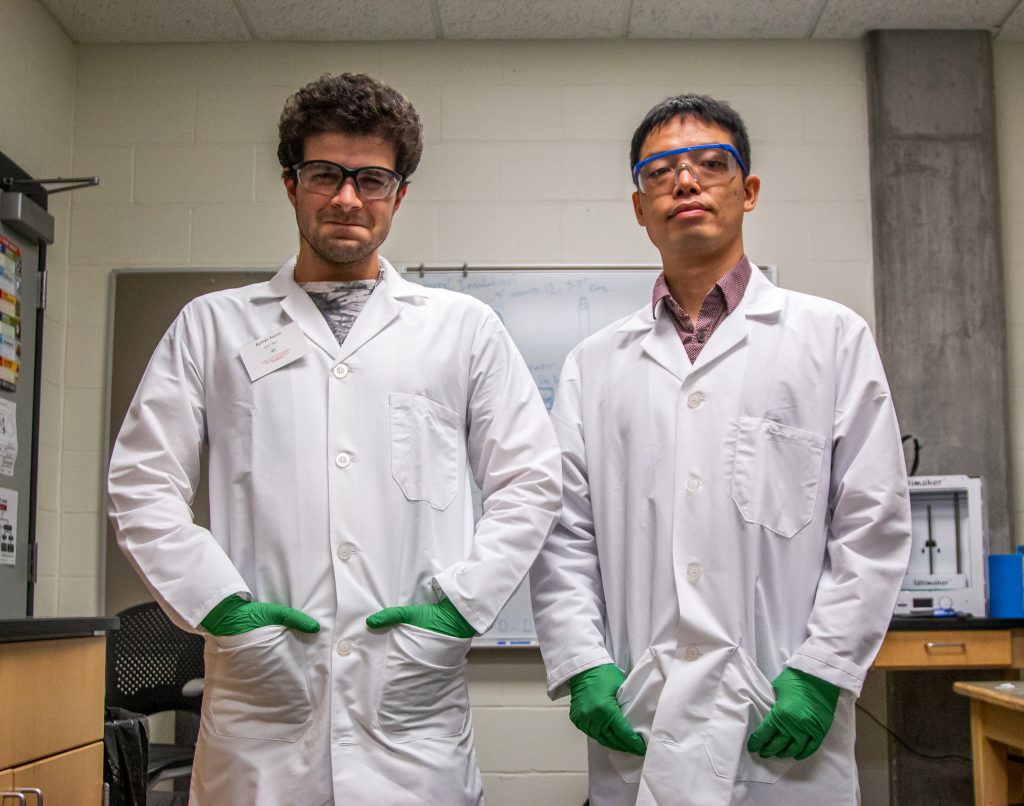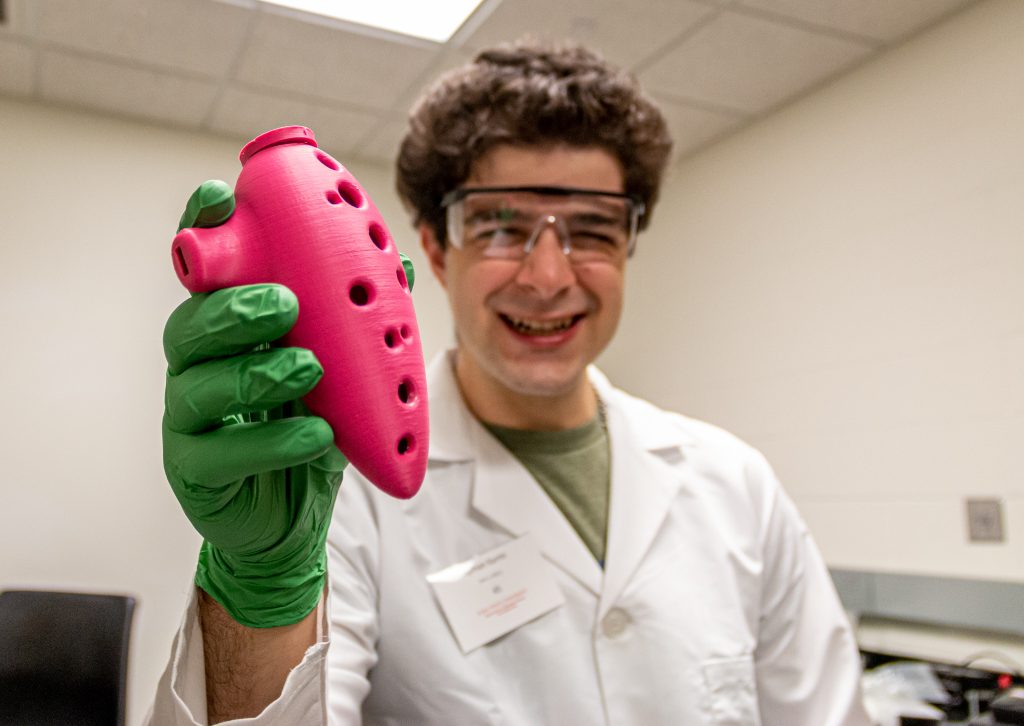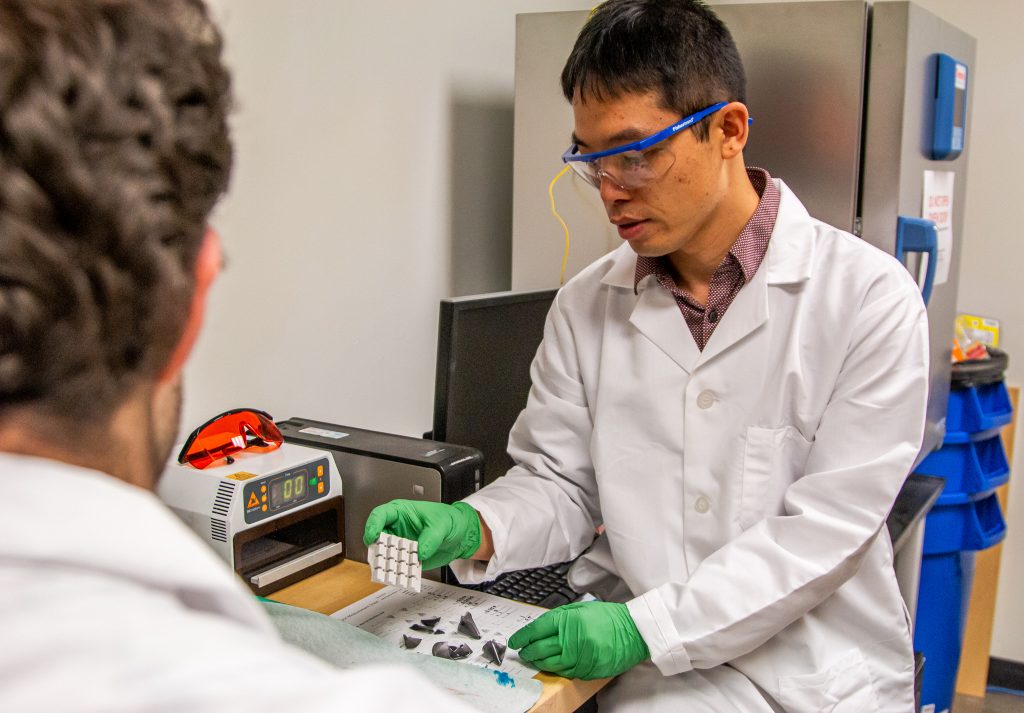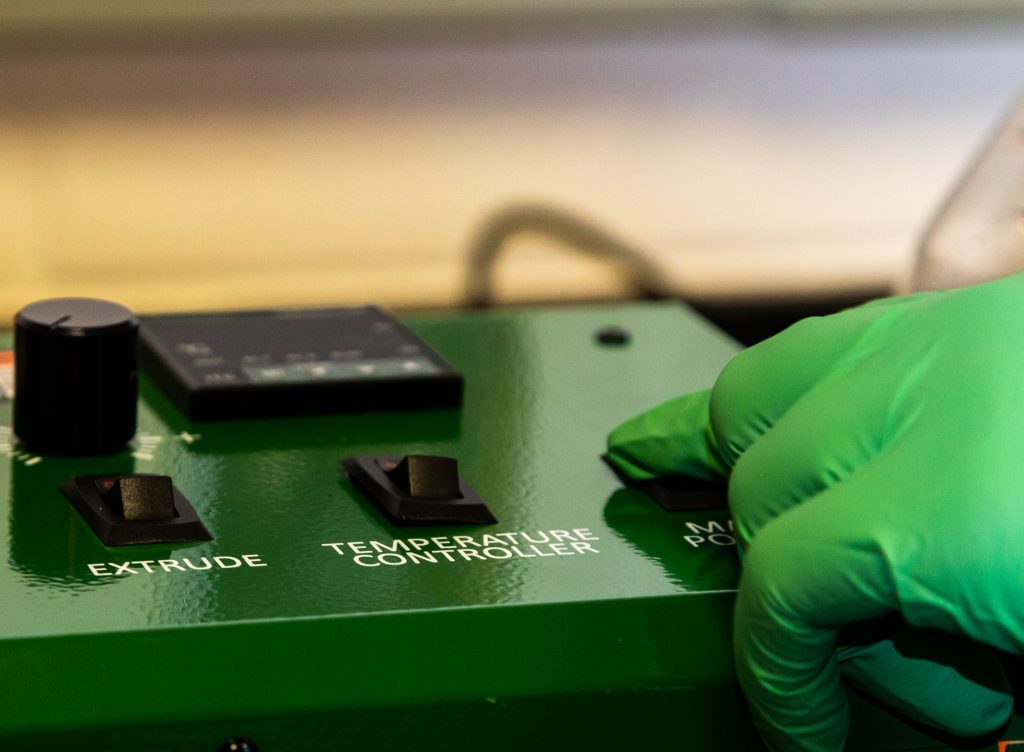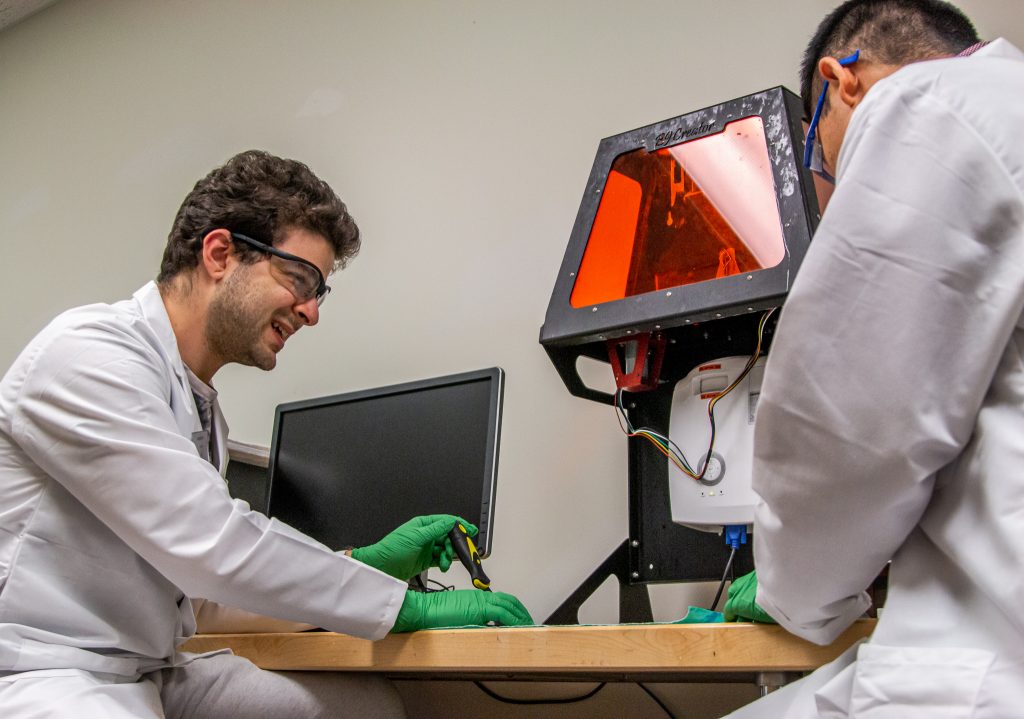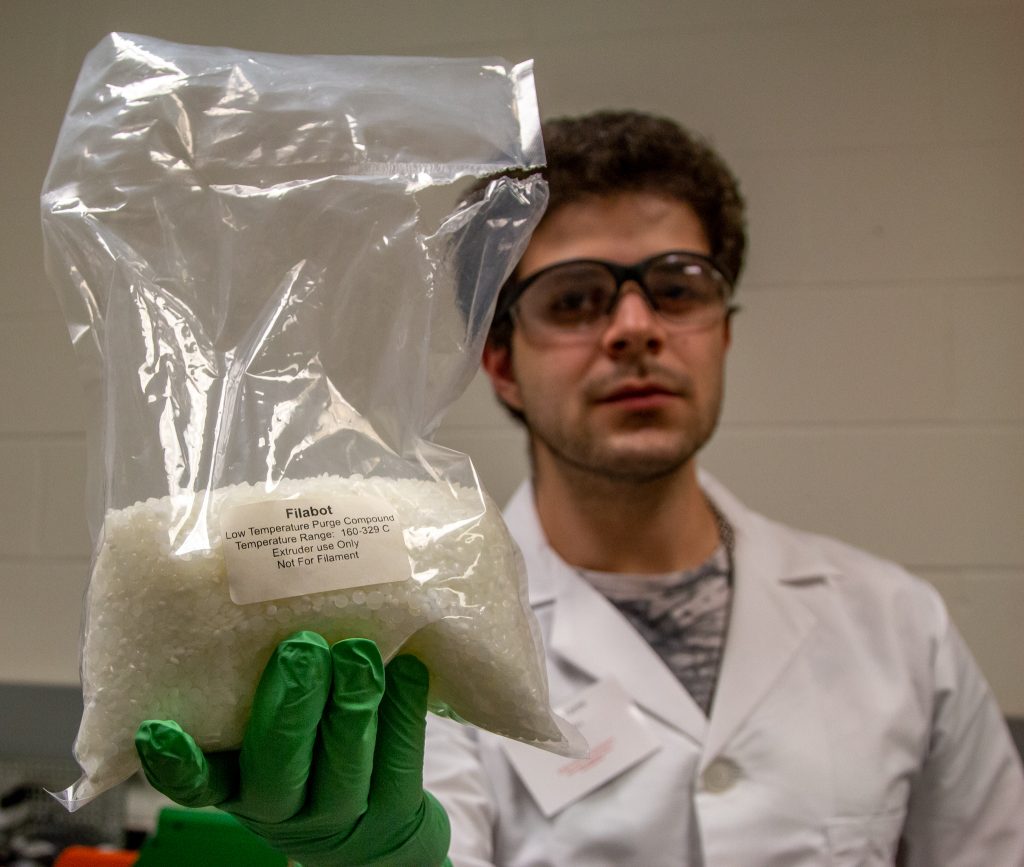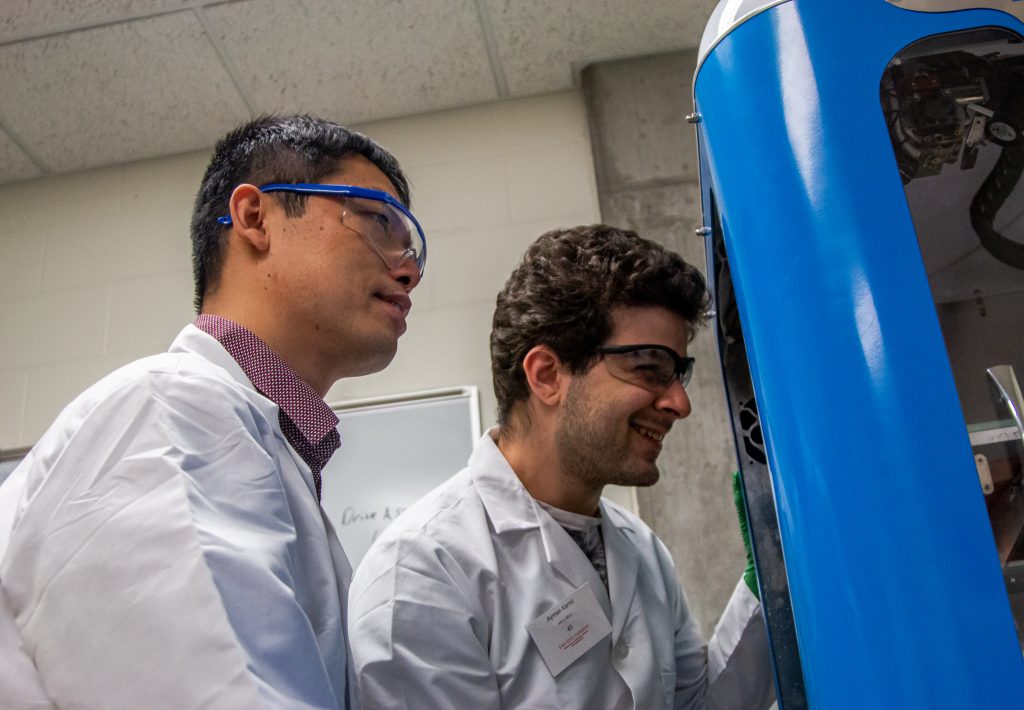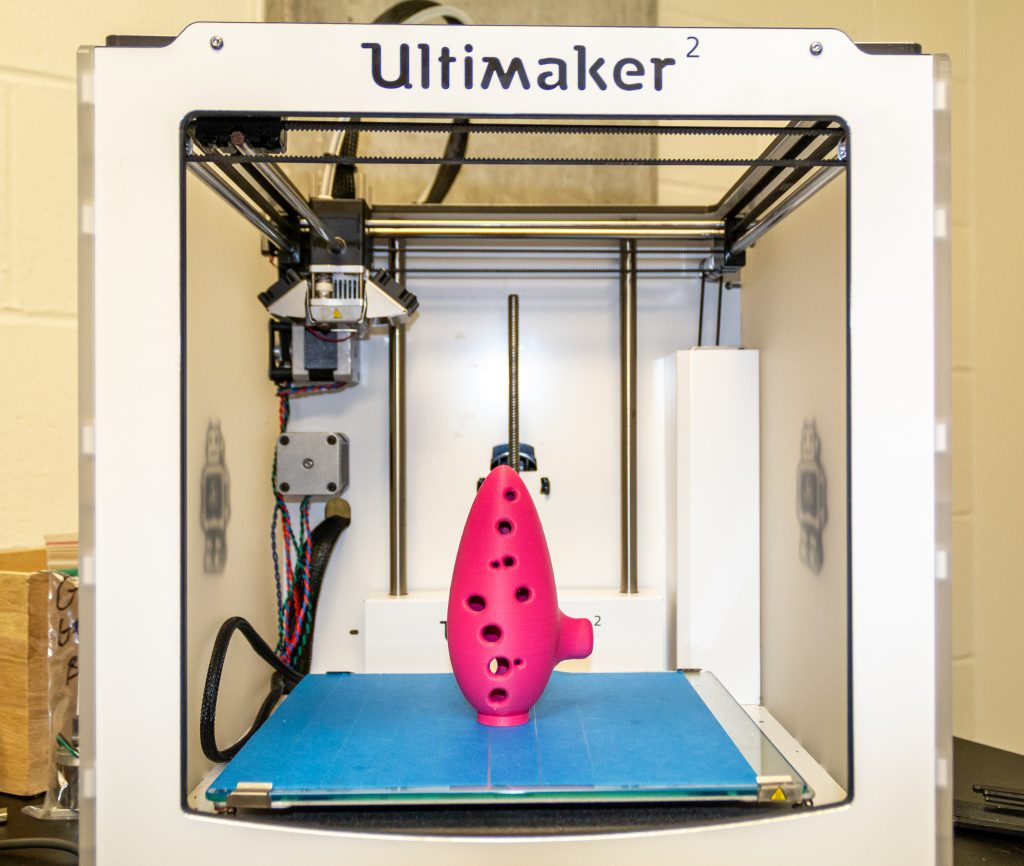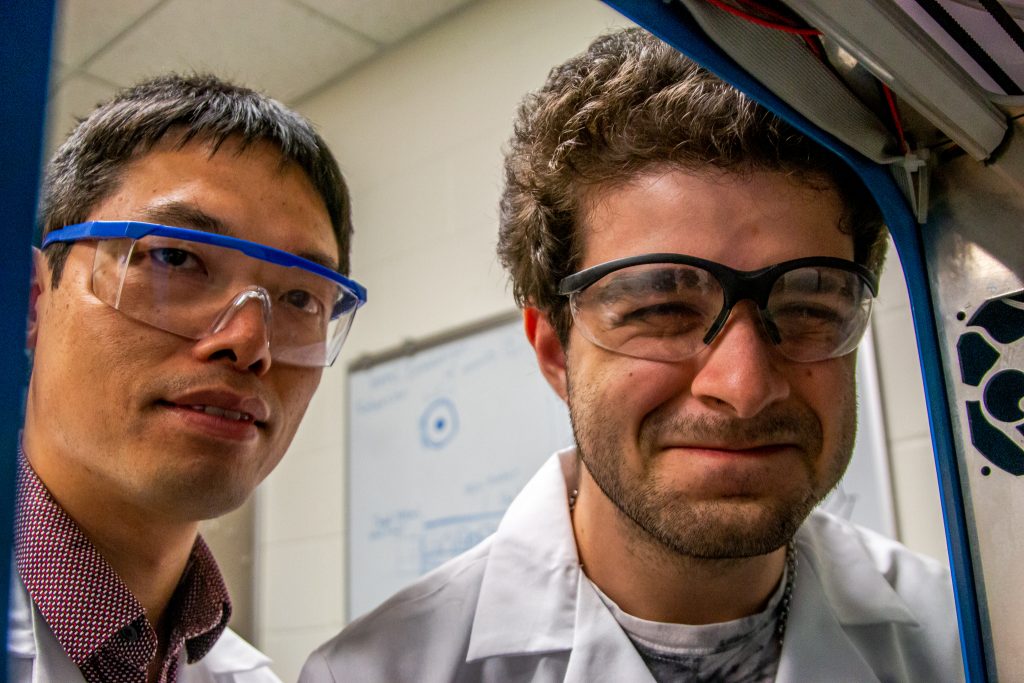REFORM plays to the tune of sustainability
Author: Collin Maguire
Author: Collin Maguire
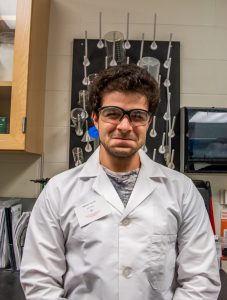
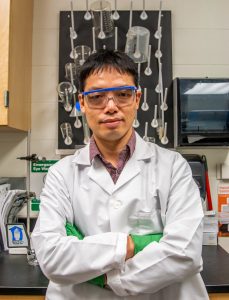
When most of us think “recycling,” we don’t also immediately think “music.” But innovative students at Iowa State are collaborating across disciplines to find the perfect harmony between materials science, reducing waste, and creating new musical instruments.
In the Recyclables Evolved from Offscouring Remade to Music (REFORM) project, students from areas in engineering, particularly materials science and engineering, are working together with students in music and theatre to reduce plastic waste at Iowa State by gathering plastic materials and transforming them into durable plastic musical instruments.
“I was just trying to connect my music hobby with my research when I originally came up the REFORM idea. It really exceeded all my expectations,” said Shan Jiang.
While the collaboration is unexpected, the recycling process itself is pretty straightforward and utilizes resources already available on campus. The gathered plastic bottles and materials must be sorted into categories, washed, and cleaned.
Then, the REFORM team members grind the plastic down into plastic pellets. These pellets are then fed into an extrusion device to be melted down so that they can be fed into a spooler, where the plastic is shaped into filament that can be used in 3D printers. The 3D printers churn out durable plastic musical instruments and parts that can be utilized by students in the music department.
REFORM is well on its way to making change for the better at Iowa State, taking waste from campus and transforming it into useful materials that will last and can eventually be reused again. The team has received a NASA undergraduate hands-on experience grant and the Iowa State Student Innovation Fund Challenge to advance their work.
Ayman Karmi shares his experience and vision for the future of REFORM.
What inspired this collaboration between engineering, art, and environmentalism?
REFORM began with one simple problem: instruments, instrument parts, and instrument repair are very expensive due to their complex shape and select materials. Plastic waste is about as cheap as you can get in terms of material, and there are many plastic instruments/parts that already exist and can be manufactured with regular 3D printers.
That being said, their quality and safety can be greatly improved by employing the latest in materials science. As we began brainstorming different solutions and facets of this program, we quickly realized that we could perform near-endless innovation in the fields of materials processing, instrument design, and sustainability.
What has been your favorite memory working with students across disciplines?
I have been surprised and amazed by the different backgrounds and capabilities of our members. We recruited a music student in the spring who turned out to be a wizard with machines! This person had so much knowledge about polymer processing equipment and mechanical. He even built his own polymer extruder in high school. Would you have guessed that someone who studies music could have such a strong background in engineering?
What do you envision for this program in the future?
REFORM has the capacity to pursue near-infinite innovative avenues that can’t be exhausted before I graduate. By April 2022, REFORM intends to present a minimum-viable machine that can recycle plastic water bottles made of PET into musical instruments, develop an effective recycling program to collect waste and enhance our environmental impact, and begin performing outreach to public schools with tested, 3D-printed instruments. Once these ambitious goals are met, REFORM will be in an ideal position to start exploring improvements.
Over the past few months, I’ve become very familiar with the phrase “Innovate at Iowa State.” Iowa State is raising the bar for innovation on campus, and my expectation is that REFORM will contribute to that. ISU is a hotpot of brilliant people and wonderful place, and there is an abundance of resources here to build a far-reaching, collaborative project like REFORM. We intend on honoring this by enhancing Iowa State’s reputation through innovation.
We have come so far in five months, and I can’t begin to imagine what this program will look like in five years. However, I’m positive that it will still be here, transforming the landscape of sustainable, musical innovation.

